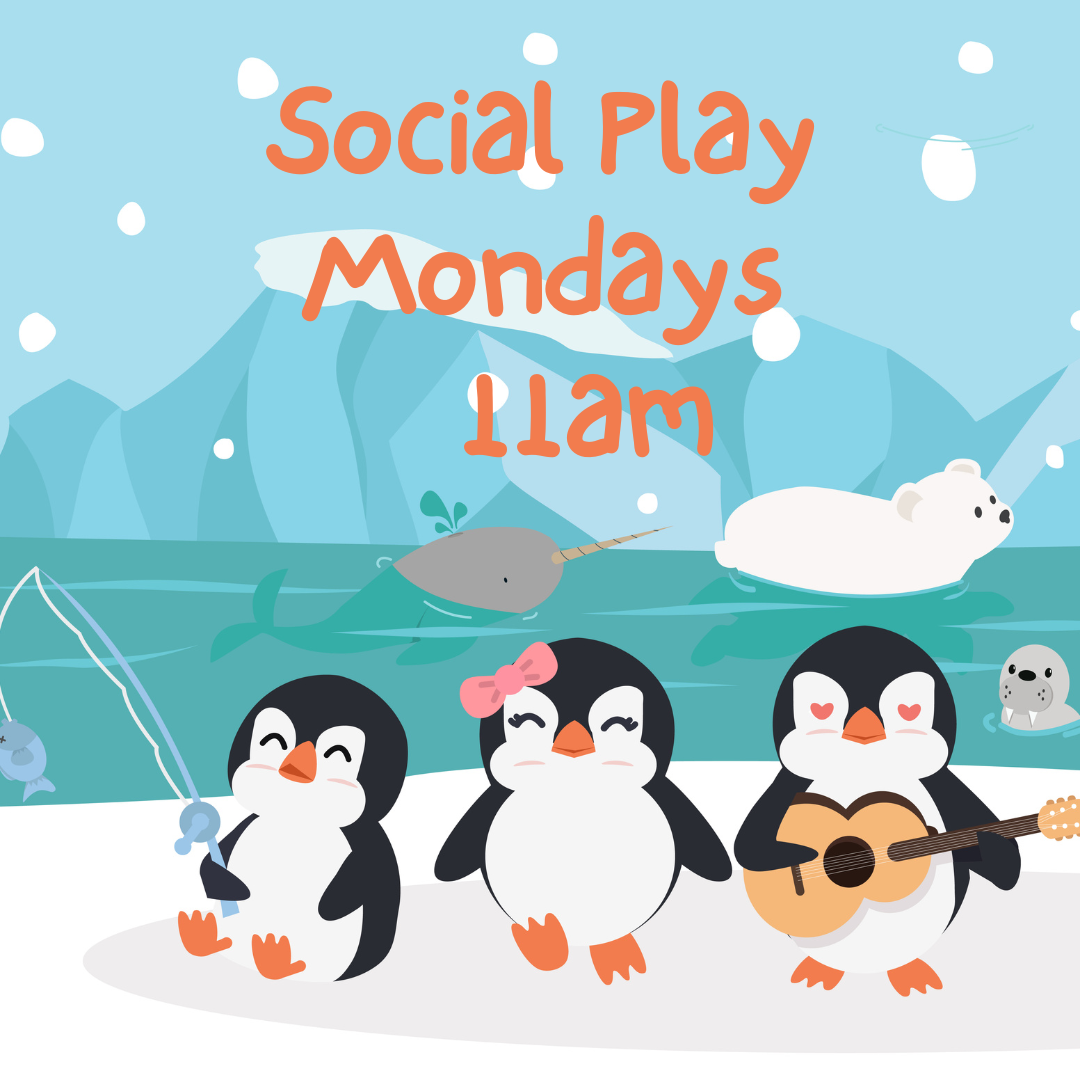No registration.
Weekly classes begin Monday, January 13 and continue through Monday, March 3.
No class January 20 and February 17.
Social Play hour is a great time for both children and caregivers to interact. Children learn about sharing while engaging with other children and caregivers make connections with other adults.
Social playtime includes a variety of activities from sensory toys to hands on art activities which help young children learn about the world and explore. Sensory play is any activity that involves engaging the senses. Generally speaking, the more senses you can include, the better.
Why is Sensory Play important? Here are just a few positives to sensory play...
Encourages problem solving - As children manipulate objects and explore through their senses, they are developing key strategies to problem solving. Guessing, experimenting, testing assumptions, and drawing conclusions are all foundations for the scientific method.
Increases brain development - Toddlers learn about the world around them and their own senses and body responses through the senses. When the senses are engaged, neural pathways in the brain are being created.
Provides sensory input - Getting adequate sensory input each day is important for every child. It is even more crucial for kids who have Sensory Processing Disorder.
Better retention -When children use more of their senses while learning, they are better able to retain what they’ve learned.
Language development - During sensory play, a child can describe what they are touching, tasting, hearing, seeing, smelling, or experiencing through their body sensation. Learning descriptive words in relation to their senses such as “smooth”, “rough”, “soft”, “cold”, “fragrant”, “sweet”, “spicy” and so many more expand a child’s vocabulary.
Improves fine motor skills - The type of movement involved in sensory play such as squeezing, pinching, sorting, placing, and scooping are designed to improve fine motor skills and increase coordination.
Sparks an interest in learning - Playing is FUN! So it makes sense that learning also becomes fun while it is included in play. Children will continue to explore the areas that interest them as the grow and this can and will include learning
